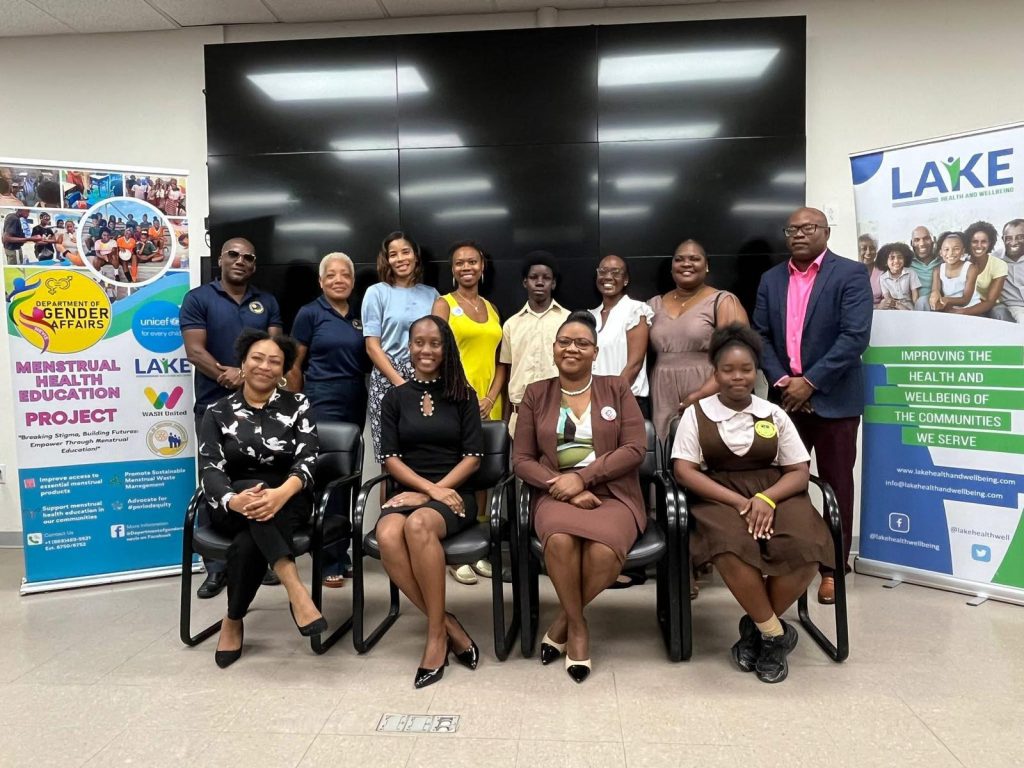Nevis Implements Menstrual Health Education Program Across Public Schools
The Nevis Island Administration (NIA) has taken a significant stride towards promoting menstrual health awareness and support by launching the Menstrual Health Education Project across all its public schools. This initiative, officially unveiled on February 4, 2025, aims to destigmatize menstruation and empower young people with the knowledge and resources necessary to manage their menstrual health effectively. The project emphasizes the importance of menstrual health as a fundamental human right and seeks to create a supportive environment where menstruation is openly discussed and addressed rather than treated as a taboo subject. The launch event, held at the Nevis Disaster Management Department’s Emergency Operations Center, brought together key stakeholders including government officials, educators, health professionals, and representatives from partnering organizations.
The project’s significance lies in its comprehensive approach, addressing the issue of menstrual health from multiple angles. It recognizes the importance of education, resource provision, and creating a supportive environment. By incorporating menstrual health education into the school curriculum, the NIA aims to empower both girls and boys with accurate information about menstrual hygiene, thus dispelling myths and misconceptions that often surround this natural biological process. Furthermore, the project seeks to equip schools with the necessary resources to support menstruating students, ensuring access to sanitary products and appropriate facilities. This holistic strategy is designed to create a culture where menstruation is normalized, and young people feel comfortable discussing their needs and seeking support.
The Menstrual Health Education Project is not solely focused on girls. It actively engages boys in the conversation, promoting empathy and understanding of menstrual health. By including boys in this crucial dialogue, the project aims to foster a culture of respect and shared responsibility, dismantling the stigma often associated with menstruation. This inclusive approach is essential for creating a truly supportive environment where all students feel comfortable and empowered to navigate the topic of menstrual health openly. Educating boys alongside girls helps normalize the conversation, reducing shame and embarrassment surrounding the topic, and promoting a more inclusive and understanding school environment.
The project’s launch received strong endorsements from key figures within the NIA. Permanent Secretary in the Ministry of Education, Zahnela Claxton, emphasized the project’s vital role in fostering a healthy and confident generation of young people. She underscored the importance of educating both boys and girls about menstrual health, highlighting its contribution to creating a respectful and supportive societal environment. Minister of Health and Gender Affairs, Honourable Jahnel Nisbett, echoed these sentiments, emphasizing the necessity of making sanitary products readily available in schools, mirroring the accessibility of toilet paper. She stressed the importance of viewing access to menstrual hygiene products as a fundamental right, thereby preventing disruptions to girls’ education due to period poverty.
The two-year research phase preceding the project’s launch involved extensive data collection across 14 schools on the island. This research provided valuable insights into the specific challenges and needs related to menstrual health within the Nevisian school context, ensuring that the project is tailored to address the unique requirements of the local population. The data gathered during this phase informed the design and implementation of the project, ensuring its relevance and effectiveness in addressing the specific needs of students on Nevis. This meticulous research phase demonstrates the NIA’s commitment to evidence-based policy-making and its dedication to developing impactful programs that address real-world challenges faced by its citizens.
The Menstrual Health Education Project is a collaborative effort, supported by a network of organizations including Lake Health and Wellbeing, WASH United, UNICEF, and the Advancement of Children Foundation, all working in partnership with the Nevis Department of Gender Affairs. This collaborative approach leverages the expertise and resources of multiple organizations, maximizing the project’s potential impact. The involvement of international organizations such as UNICEF further strengthens the project’s credibility and provides access to best practices and resources from around the world. The project’s launch is a testament to the power of partnerships in addressing critical social issues and creating positive change within communities.
Share this content:












Post Comment